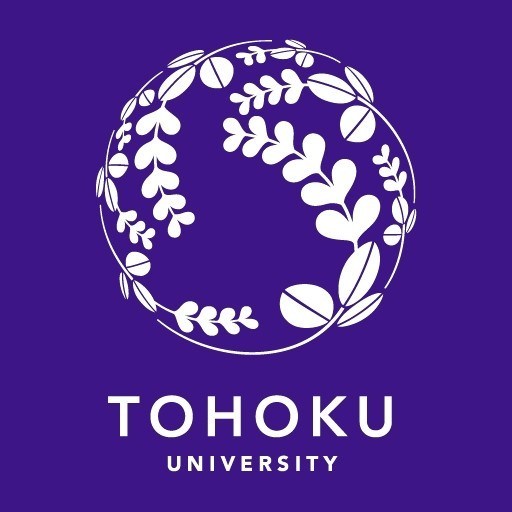Photos of university / #university_of_tsukuba
The Master of Arts in Education (International Education) is a newly developed specialization of the Master of Arts in Education offered by the University of Tsukuba. The program will launch in April of 2017. It is one of three specializations.
Rationale
As part of the government plan to maximize the development of human resources, educational practices in Japan are currently open to change. Much might be learned from current models of international education to inform the changes. But Japan’s unique cultural and educational traditions also have much to contribute to potential new models. Synergizing these two strands is an exciting challenge in which you can take part as a master’s student of international education at the University of Tsukuba. An important component of the course is an in-depth study of IB philosophy, pedagogy, and practices leading to the award of an IB educator certificate for successful participants.
If you are a courageous critical thinker and want to be part of creating meaningful change in educational practices in Japan, then please contact us.
Aims of the specialization
The aim of the University of Tsukuba's Master's Program in Education is to develop highly skilled and committed leaders in education who can address issues in the field. The specialization in International Education aims to develop the knowledge, skills, and concepts necessary for successful practice and research in a globalized world.
Objectives of the specialization
The objectives of the specialization are to develop internationally minded inquirers with a sound understanding of innovative thinking in education and the skills necessary to plan and conduct research on issues in international education. Students will investigate pedagogy, curriculum, and assessment in the context of the International Baccalaureate and other international curricula.
Student profile
This specialization welcomes open-minded thinkers with an active interest in educational innovation who want to make a contribution to the field of international education.
Language of instruction
Course offerings in this program will include both courses taught in English and Japanese. Students wishing to pursue the IB Educator Certificates will have the majority of their course work delivered in English. There will be significant language support offered to Japanese speakers.
Academic year
The University of Tsukuba has two semesters which are divided into three five-week terms (A,B,C). The majority of classes take place in Terms A and B. The academic year begins in April and ends in March.
International Baccalaureate Educator Certificates
The University of Tsukuba is recognized to offer the International Baccalaureate’s (IB) Certificate in Teaching and Learning (IBCTL) and the Advanced Certificate in Teaching and Learning Research (IBACTLR), through its Masters of Arts in Education (International Education) programme.
To complete the Master of Arts in Education (International Education) students must obtain 30 credits of course work and complete a Master’s thesis.
Students must complete the following mandatory courses:
- Education and an interconnected world
- Pedagogy for a changing world I
- Research methodology
- Research design methods
- Graduate seminar in international education
Students must take credits electives groups one and two as well as credits from outside of the program.
| Elective group 1 | Elective group 2 |
|
|
Applicants must meet the following criteria to be eligible to apply.
- Have graduated from a four-year university program
- Expect to graduate from a four-year university program by the end of March 2017
- Have completed 16 years of formal education by the end of March 2017
- Be persons recognized in the individual qualification screening process as having equivalency to the conditions above.
- Be individuals designated by the Ministry of Education
Application documents
- Application form
- A copy of the picture pgfe of your passport
- Examination fee
- Graduation certificate
- Degree certificate
- Transcripts
- Research plan
- Financial plan
- TOEFL/TOEIC/IELTS Score
- Application checklist
Scholarships
Government scholarships
The Japanese government (Monbu-kagaku-shō) offers some scholarships for international students. Information on applying for Japanese Government scholarships is available through Embassy websites in your home country.
The International Education program at the University of Tsukuba offers a comprehensive curriculum designed to prepare students for successful careers in global environments. This program emphasizes intercultural understanding, language proficiency, and interdisciplinary knowledge to equip graduates with the skills necessary to excel in international settings. Students have the opportunity to engage in coursework that integrates aspects of international relations, global business, cross-cultural communication, and foreign languages, fostering a deep understanding of diverse cultures and global issues. The program often includes immersive experiences, such as study-abroad semesters, international internships, and collaborative projects with partner institutions worldwide, enabling students to apply their learning in real-world contexts. Faculty members are experts in their respective fields, providing mentorship and research guidance to support students' academic and professional development. The University of Tsukuba is renowned for its emphasis on research, innovation, and international collaboration, which are core components of this program. Students are encouraged to develop critical thinking, problem-solving, and leadership skills, preparing them for careers in international organizations, diplomacy, global business, education, or further academic research. The language of instruction is primarily English, but programs often include Japanese language courses to facilitate communication and cultural integration for international students. The program also aims to foster a global network of alumni and partnerships, promoting lifelong learning and professional growth. Overall, the International Education program at the University of Tsukuba is designed to cultivate globally-minded professionals who are capable of addressing complex international challenges with competence and confidence.






